Student Initiative Helps Connect Patients to Community Services in Durham
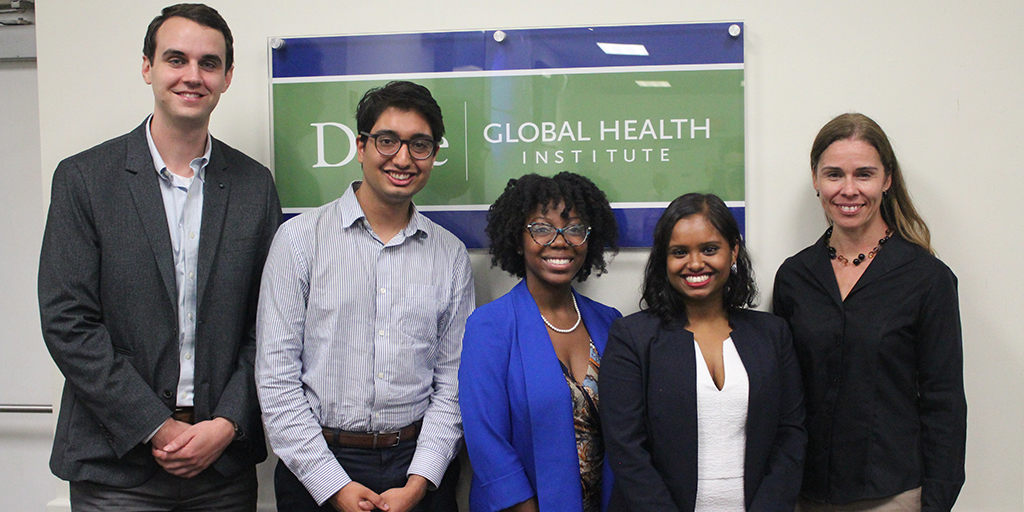
Being healthy involves a lot more than healthcare. Social determinants of health, such as food insecurity, economic instability, unstable housing and lack of transportation, account for an estimated 40 percent of a person’s health outcomes. In Durham, Lincoln Community Health Center is part of a statewide effort to address patients’ unmet social needs by referring them to local services that can help.
But getting a referral isn’t necessarily enough. There are many reasons why a patient may not actually connect to these community resources after they leave the health center. Can improving patients’ understanding of referrals lead to better health outcomes?
This year, a Bass Connections project team is expanding and evaluating a “Help Desk” program at Lincoln Community Health Center, building on pilot results from 2018-19. After receiving extensive training, student volunteers make follow-up calls to patients who have been referred for community-based services. Did the patients connect to the resources most important to them? If so, they’re asked to rate the ease of access and the usefulness of the resource. If not, the volunteer callers assess why not, then provide motivation for follow-through and help problem-solve to remove barriers.
On October 22, leaders and members of the Help Desk team presented Closing the Loop: NC Healthcare Transformation and Local Efforts for Addressing Nonmedical Needs for the Duke Global Health Institute’s Think Global series. Speakers included Janet Prvu Bettger, Erika Dennis, Connor Drake, Meril Pothen and Sahil Sandhu.

“I have been leading the Global Alliance on Disability and Health Innovation project for four years. Our partners around the world said, ‘Well, how are you doing this at home?’ [This year] I’m very fortunate to work with Connor, Sahil and three task forces of students.”
Janet Prvu Bettger, Associate Professor of Orthopaedic Surgery
Janet Prvu Bettger is the faculty leader of the Help Desk project. Her research on integrated models of care aims to improve health, healthcare quality and policies that reduce the burden of disease and disability. She is the Director of Undergraduate Initiatives at the Duke-Margolis Center for Health Policy, and Director of the Duke Roybal Center for Behavioral and Social Science Intervention Research.
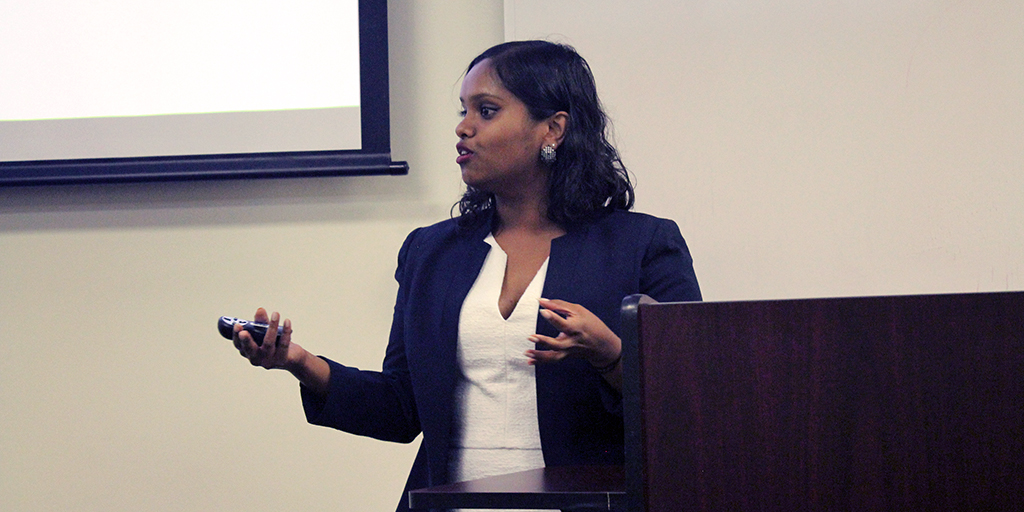
North Carolina is in the middle of a massive transformation in how we provide healthcare. We are one of only 11 states remaining in a fee-for-service system, and we're now moving to managed care. Housing, food, transportation and interpersonal violence are four levers the healthcare system can use to influence health.
Meril Pothen, Master of Public Policy Candidate, Sanford School of Public Policy
Meril Pothen’s policy focus is payment reform, particularly around value-based payment, employer wellness interventions and nonmedical services that lower healthcare costs. She leads the Health Policy and Community Engagement task force for Help Desk team. She is also a Margolis Scholar in Health Policy and Management. Before Duke, she spent five years in healthcare consulting, supporting clients in pharma market research, hospital patient experience and revenue cycle management.
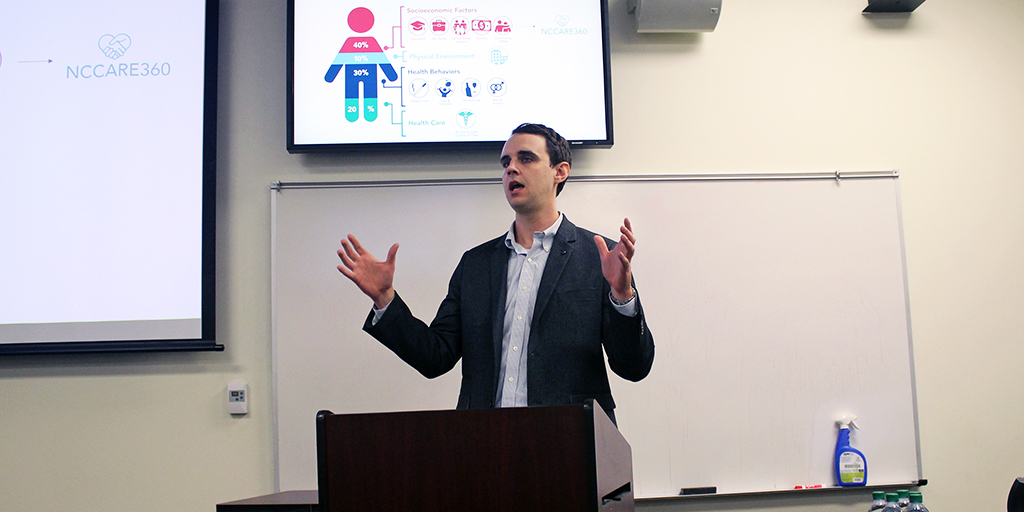
NCCARE360 has gone live here in Durham in the last few months. It’s a really exciting time, and community health centers are on the forefront of innovation nationally. We’re privileged to be here in Durham because Lincoln Community Health Center is one of the leaders in this work.
Connor Drake, Ph.D. Candidate in Health Policy and Management, UNC–Chapel Hill
Connor Drake’s research interests include population health management, implementation of evidence-based interventions and clinical care redesign to engage patients to address both medical and non-medical needs. He co-leads the Help Desk project and is Research Program Leader at the Duke Center for Personalized Health Care.
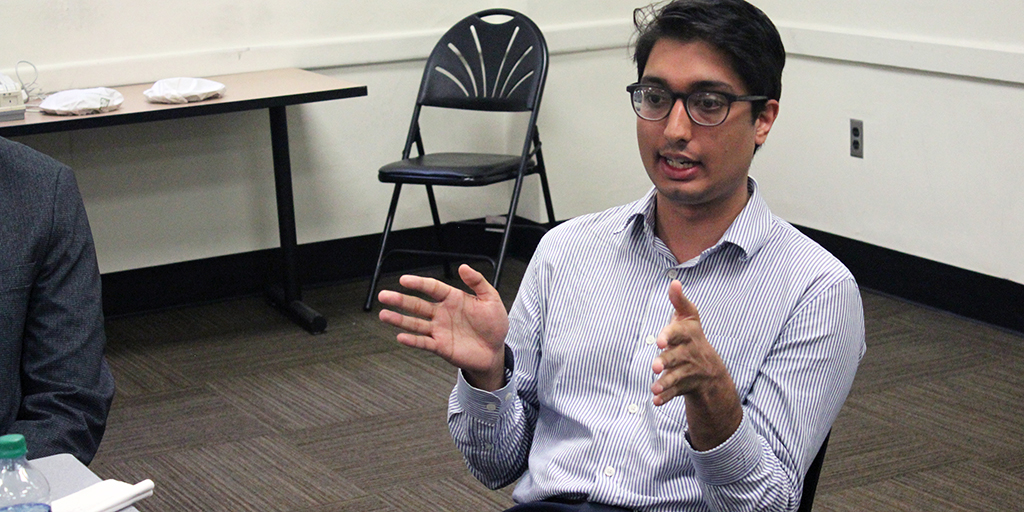
Our student volunteers are developing motivational interviewing skills. Also, many are prehealth and nursing or med students, and they’re learning about the needs of the Durham community. This will help them be better prepared to contribute.
Sahil Sandhu, Program II Candidate, Trinity College of Arts & Sciences
Sahil Sandhu is pursuing a self-designed degree in “Health Innovation: Evidence to Impact.” He studies the use of evidence-based practice to design, implement and evaluate new health innovations both domestically and globally. Sandhu is a founder and leader of the Help Desk team, and a member of the Bass Connections Student Advisory Council.
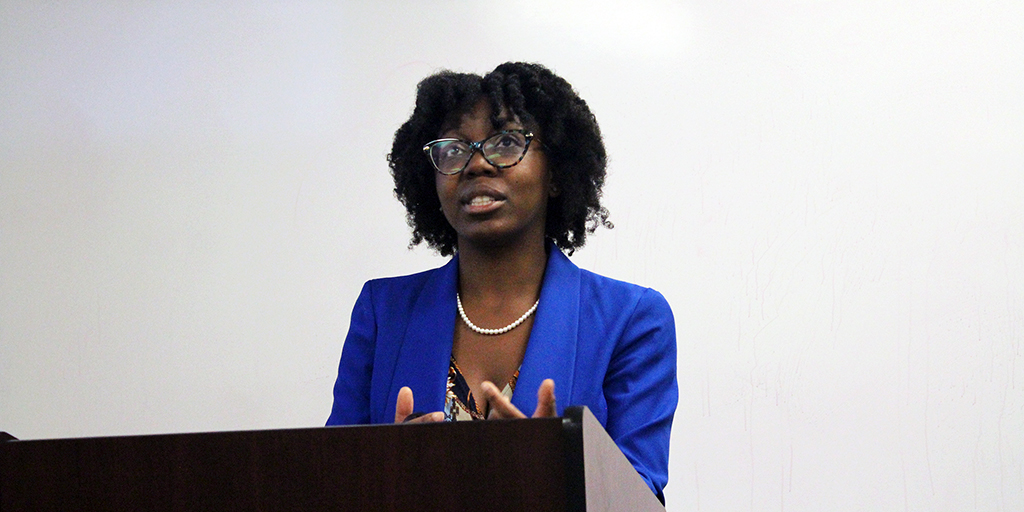
As a nursing student, I’d definitely say this has been an eye-opening experience regarding the social determinants of health. It has inspired me to provide a more person-centered approach to care and take a step back to explore the patient’s background.
Erika Dennis, Accelerated Bachelor of Science in Nursing Candidate, School of Nursing
Erika Dennis completed her Bachelor of Science in Health Administration at Texas Southern University and is a Health Equity Academy II Scholar at the Duke University School of Nursing. She is dedicated to learning and implementing new ideas to improve patient outcomes and health services delivery.
Sharing Insights and Study Findings
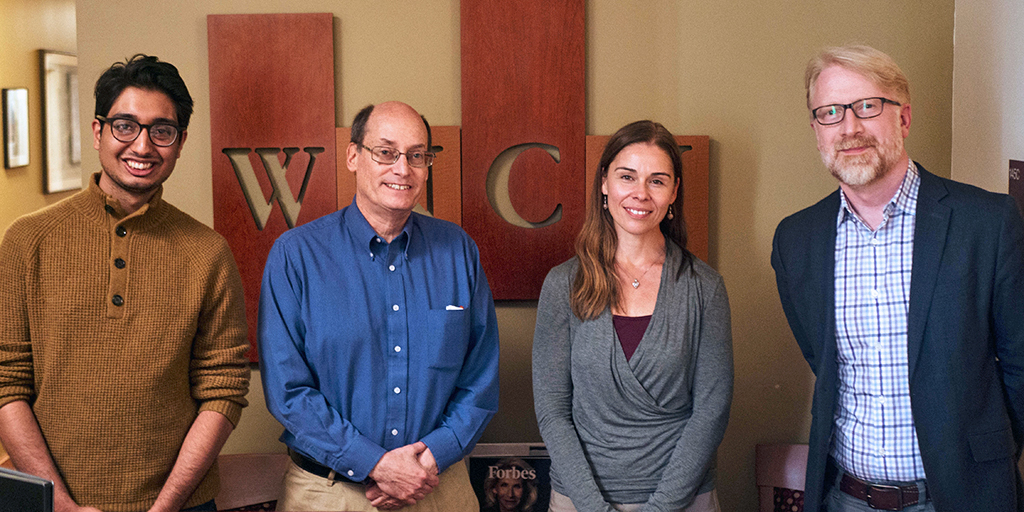
Earlier this month, Bettger and Sandhu joined Howard Eisenson, Chief Medical Officer of the Lincoln Community Health Center, for an interview with Brian Southwell of RTI International. The resulting episode of The Measure of Everyday Life radio show and podcast will be available in the coming weeks.
In December, team members will present two posters at the 12th Annual Conference on the Science of Dissemination and Implementation in Health:
- Examining the Construct Validity of a “Resolved Referral” as a Measure of Quality for Health Centers Implementing Programs to Address Social Determinants of Health (Connor Drake, Erika Dennis, Sahil Sandhu, et al.)
- Development and Implementation of a Volunteer Community Resource Navigator Program to Address Patients’ Unmet Social Needs (Sahil Sandhu, Lillian Blanchard, Jacqueline Xu, et al.)
Learn More
- Read more about this Bass Connections project team, Help Desk: A Student Initiative to Help Address the Social Determinants of Health.
- Explore the Bass Connections 2018-2019 Annual Report.
- See the RFP for 2020-2021 Bass Connections projects and submit a proposal by November 4.